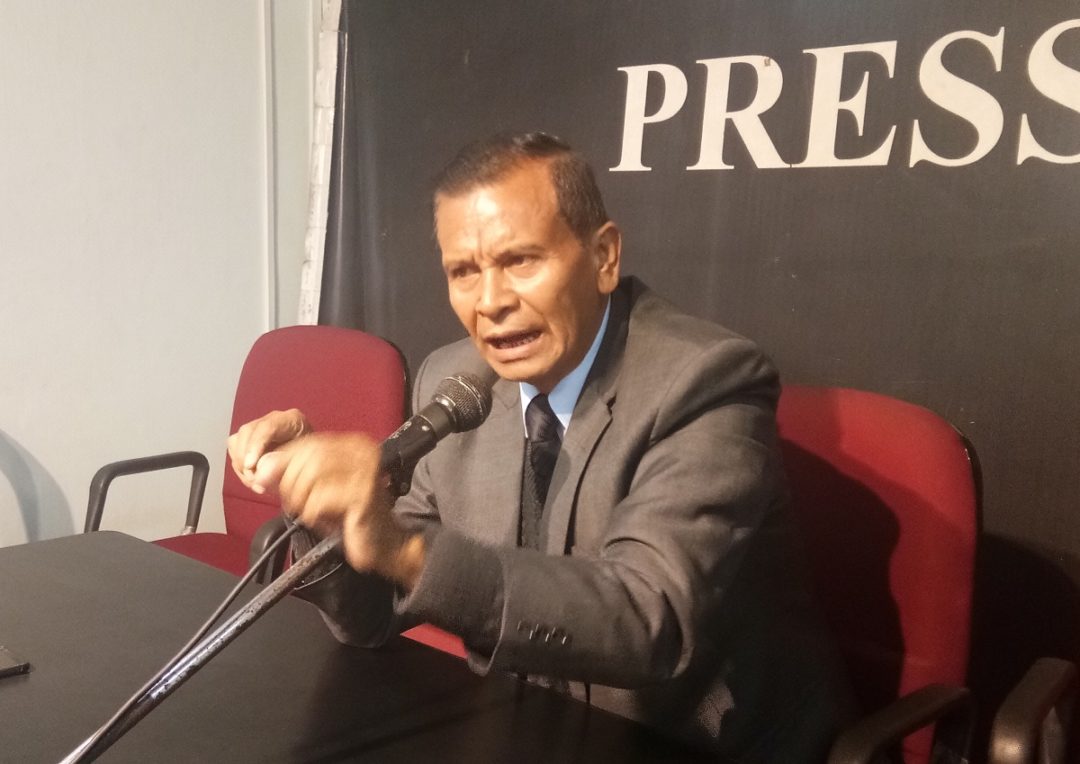Shylla urges Guv to issue notification to implement ILP in Meghalaya

SHILLONG: Former KHADC chief Hispreaching Son Shylla has urged the Governor RN Ravi to issue a notification for implementation of the Inner Line Permit (ILP) in the state.
In a letter submitted to Ravi on Thursday, Shylla said as per Section 2 of the United Khasi-Jaintia Hills District (Application of Laws) Regulation, 1952 known as Regulation No. 5 of 1952, the power has been vested upon your good offices to issue a Notification with regard to any of the 225 laws which were selected and enumerated in the Schedule appended to Regulation No. 5 of 1952.
According to him, Eastern Bengal Frontier Regulation, 1873 is very much part of the Schedule.
“I sincerely request you to kindly intervene on behalf of the people of Meghalaya and assume the powers that have been vested upon you adequately in this regard as per the provisions of Section 2 of Regulation 5 of 1952,” Shylla said.
He said “in the case of Meghalaya in general and the two District Councils – the Khasi Hills Autonomous District Council (KHADC) and Jaintia Hills Autonomous District Council (JHADC) – are concerned, it would only require a Notification to be issued by your esteemed office in accordance with the ruling of the Supreme Court – for the ILP to be implemented in the state, especially in light of the fact that Meghalaya is exempted from the provisions of CAA, 2019 being one of the states where the Sixth Schedule is in force.”
The Supreme Court had stated – “But the power conferred thereunder on the Governor to bring into force the laws set out in the Schedule continued and would continue so long as the Regulation remained on the statute book.”
He said the Meghalaya Legislative Assembly in its Special Session held on 19 December, 2019 had unanimously adopted and passed a Resolution expressing its desire to implement the Eastern Bengal Frontier Regulation, 1873 (ILP) in the State, which speaks volume of the fact that the people of Meghalaya together with all their MLAs stand united and are unanimous in their call for the urgent and unconditional implementation the ILP in Meghalaya.
Stating that there have been certain feeble and lame objections to the implementation of ILP in the state, Shylla, also a former MLA said firstly, it is clearly understood that the implementation of ILP in any state does not seek to prevent the entrance of people from other states into that state in an attempt to isolate oneself from outside influences.
Rather, the implementation of ILP is to adopt a measure/mechanism to assist the state machinery in regulating, as per provisions under Article 19 (5), the unbridled flow of persons to the state leading to the unmitigated dilution of the state’s uniqueness in terms of culture, language, customs and so on, he said adding such a desire to preserve one’s own cultural roots, heritage and identity cannot be deemed to be parochial and primitive and/or alarmist. It is but a natural way of expressing one’s affection and affinity to what belongs to us, which also has the support and might of the Constitution as per provisions under Article 29.
He said the case of the Garo Hills being left out of the process has also been cited without proper examination of its unique situation. It is unfortunate for the Garo Hills to be placed in such a position at present, however the fact that the British government in India had consciously revoked the relevant laws pertaining to the implementation of ILP in Garo Hills in 1897 through the Repealing Act of 1897 needs to be taken into consideration.
Further, he said it bears highlighting in this regard that Dr Mukul Sangma during his tenure as the Chief Minister of Meghalaya had introduced the Meghalaya Residents Safety and Security Act of 2016 to address the need for separate legislation for the Garo Hills in lieu of ILP.
Hence, there is no apparent ground in this regard to denying the KHADC and the JHADC what is by law and more importantly by virtue of the Constitution of India their right and privilege, he added.
On the other hand, the former KHADC chief said the issue of Meghalaya being the thoroughfare of all North-Eastern States does not hold water as the National High Way connecting the various states in the North-Eastern Regions will not be disturbed by the implementation of the said Regulation of 1873.
He said the purpose of enacting the Regulation No. 5 of 1952 had a very significant impact on the erstwhile 25 Khasi States being brought to mainstream India without the signing of the Instrument of Merger. As such it would not only be right but constitutionally proper that the Eastern Bengal Frontier Regulation, 1873 be implemented through the Section 2 of Regulation 5 of 1952 than through a Notification to be issued by the President of India under Article 372 (2) as mentioned by the Chief Minister, Conrad K. Sangma on the floor of the House on 19 December 2019.
“At the risk of appearing uncouth, I would like to state here that the use of the said power [Article 372 (2)] referred to by Sangma is governed by clause (3) which says – “Nothing in clause (2) shall be deemed – (a) to empower the President to make any adaptation or modification of any law after the expiration of (three years) from the commencement of the Constitution. Hence, it would tantamount to a direct violation of the Constitution of India by our President if a notification is issued in such a manner as stated, unequivocally, by Chief Minister, Conrad K. Sangma,” Shylla said.

Leave a Reply